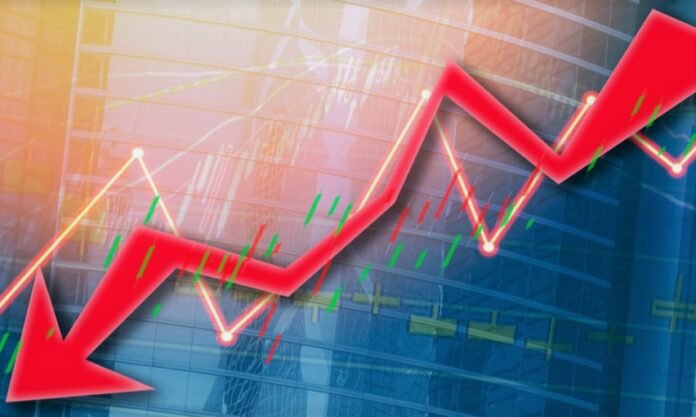Market crashes have a tumultuous history, and their devastating effects can cause economic instability and financial turbulence. These catastrophic events can be felt globally by millions of people, and their consequences can linger for years. In this article, we will delve into some of the most significant market crashes in history and how they eventually subsided.
The Great Depression: A Catastrophic Collapse of the Stock Market
The Great Depression was a severe economic downturn that lasted over a decade, leaving a trail of destruction in its wake. The catastrophic collapse of the stock market in 1929 was the catalyst for this crisis, resulting in a widespread panic that caused billions of dollars in investments to vanish. The government was forced to intervene with new policies, including social security, increased regulation of financial markets, and public works projects to boost employment. The Great Depression is a stark reminder of how quickly market crashes can devastate the economy and the importance of government intervention in stabilizing financial markets.
The Dot-Com Bubble: A Period of Rampant Speculation
The Dot-Com Bubble was a period of rampant speculation that led to the downfall of many internet-based companies. Investors poured billions of dollars into tech stocks with the hope of reaping huge profits, resulting in a stock market bubble that eventually burst in 2000. The aftermath was catastrophic, with investors suffering massive losses and the stock market taking a severe hit. The tech industry underwent significant restructuring in the wake of the Dot-Com Bubble, and the lessons learned from this market crash continue to influence investment decisions today.
The 2008 Financial Crisis: A Wave of Mortgage Defaults
The 2008 Financial Crisis was a global economic crisis that caused widespread job losses and necessitated government intervention in financial markets. The crisis was triggered by the collapse of the US housing market, which led to a wave of mortgage defaults. The government’s response involved bailouts, central bank interventions, and tighter regulation of financial institutions. The lessons learned from the 2008 Financial Crisis are still relevant today, as policymakers strive to prevent a similar crisis from occurring again.
Lesser-Known Market Crashes with Significant Impact
While some market crashes are well-known, others have had a significant impact on the global economy but are lesser-known. The Panic of 1907 resulted in a run on banks and a decline in the stock market. The 1997 Asian Financial Crisis began in Thailand and quickly spread to other Asian countries, resulting in a sharp decline in their economies. The 2010 Flash Crash resulted in increased scrutiny of computerized trading algorithms and a greater focus on the potential risks of high-frequency trading.
Mitigating the Effects of Market Crashes
Market crashes can have catastrophic consequences for individuals, businesses, and economies. Governments often need to intervene to stabilize financial markets and prevent further harm. While it is impossible to prevent market crashes entirely, policymakers can take steps to minimize their impact and mitigate their effects. Governments can achieve this by regulating financial markets, promoting transparency, and supporting employment. By learning from the lessons of history, policymakers can ensure that market crashes do not cause undue hardship and disruption.
Conclusion
Market crashes have left an indelible mark on the global economy throughout history, and their devastating effects can be felt for years. Understanding the lessons learned from these crashes is crucial in preventing similar catastrophes from occurring in the future. Governments play a pivotal role in mitigating the effects of market crashes by stabilizing financial markets and implementing policies to promote transparency and support employment. While market crashes are an inevitable part of the economic cycle, policymakers can take steps to ensure that their impact is minimal and their effects are short-lived.
Google News | Telegram
















